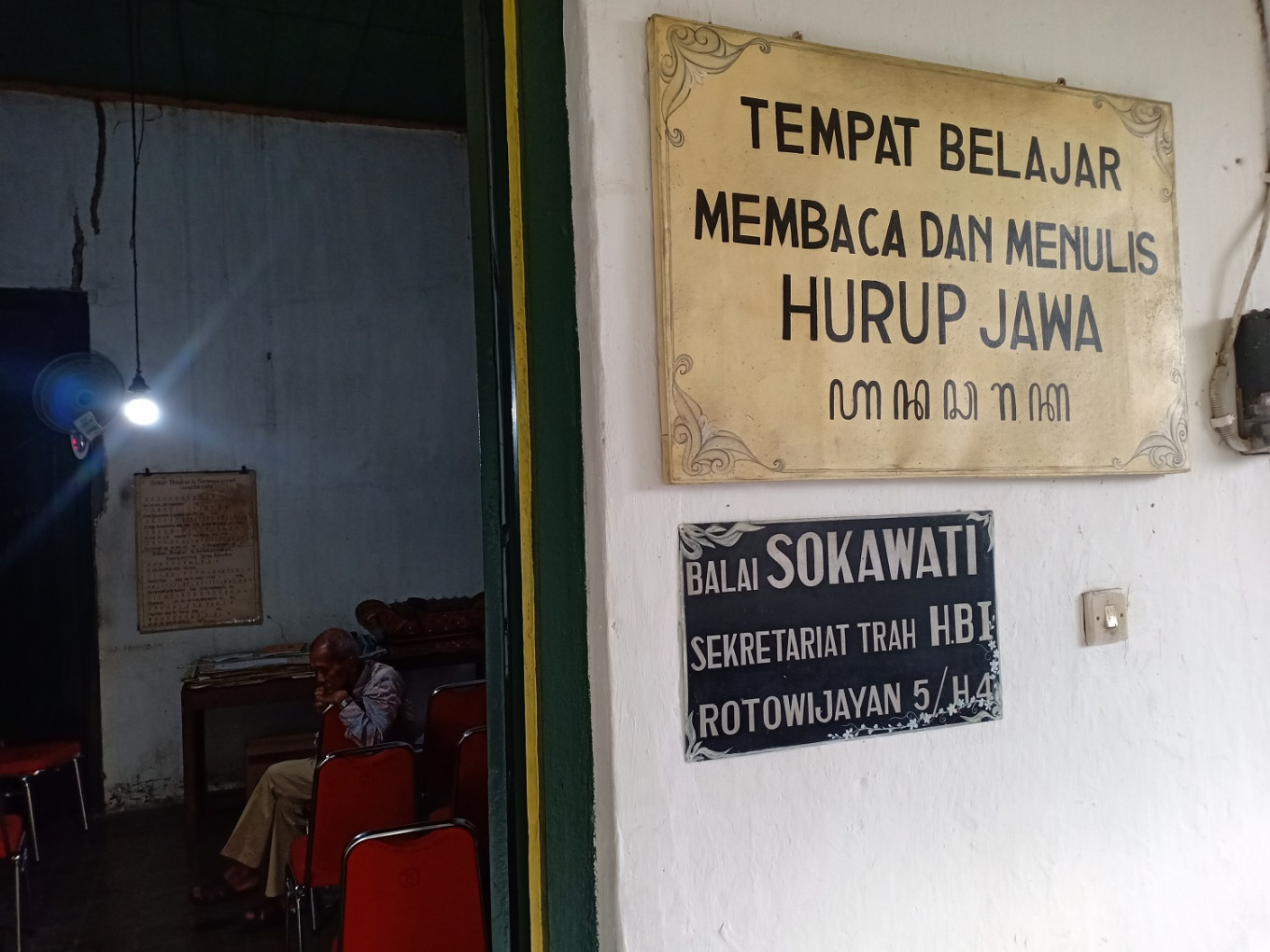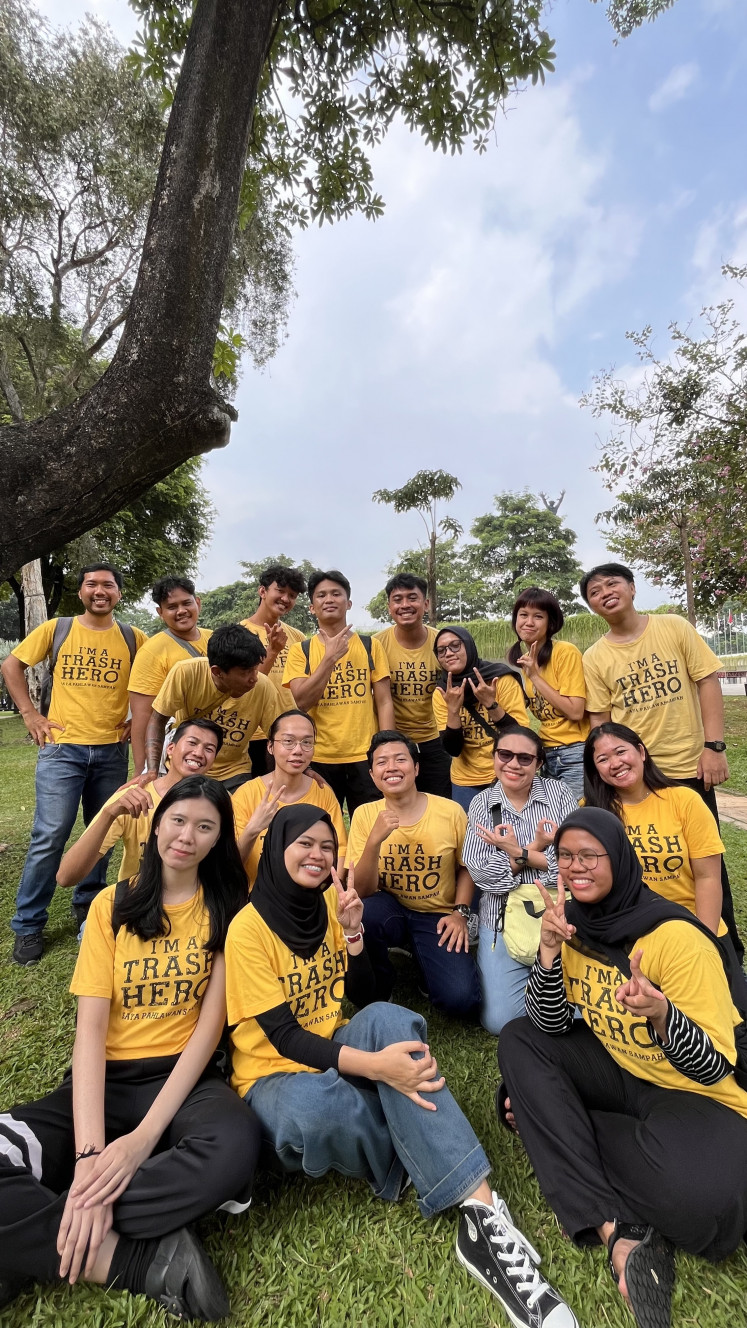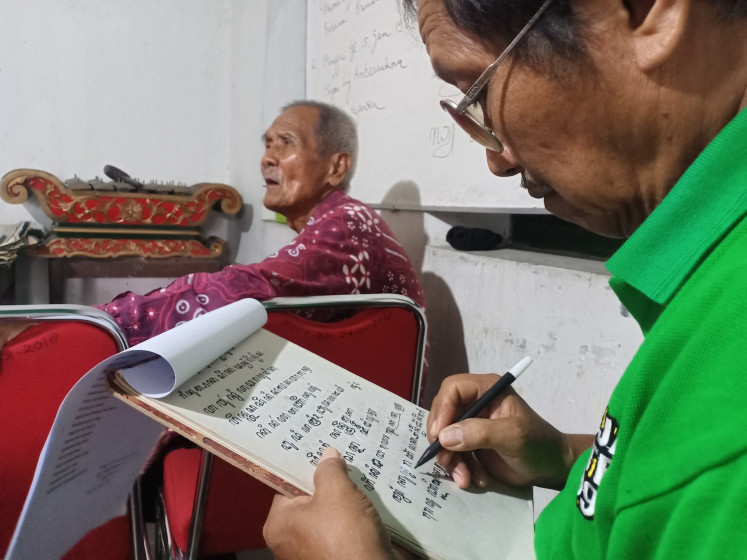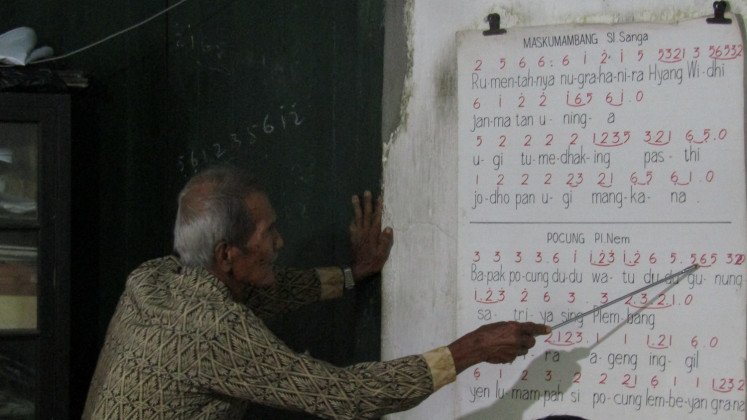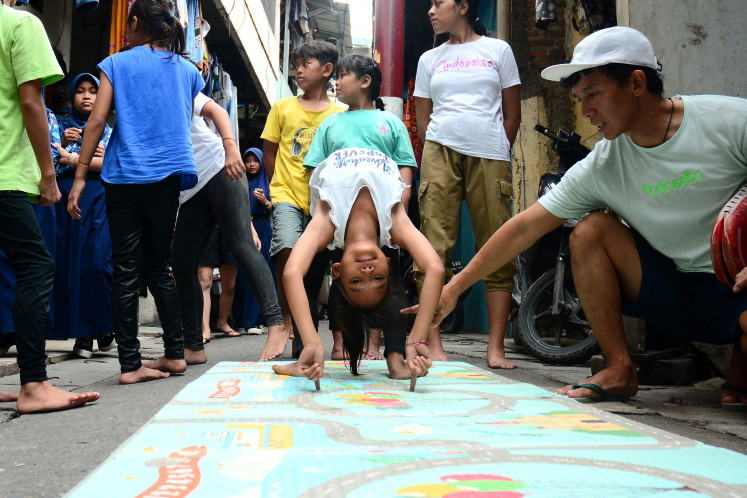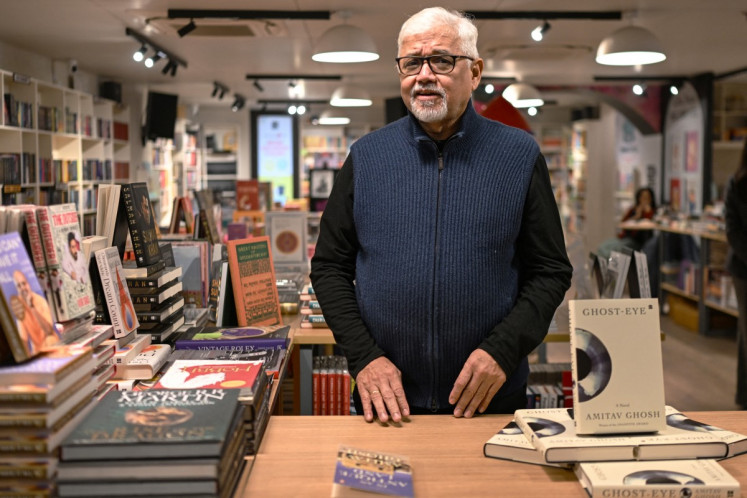Popular Reads
Top Results
Can't find what you're looking for?
View all search resultsPopular Reads
Top Results
Can't find what you're looking for?
View all search resultsLearning life lessons through 'macapat', Javanese script
A humble school in Yogyakarta offers lessons on "macapat" and the Javanese script.
Change text size
Gift Premium Articles
to Anyone
B
efore the COVID-19 pandemic, the music of macapat (a form of Javanese poetry that is sung a cappella) would be heard from a house on Jl. Rotowijayan, not far from the Yogyakarta Palace. But until April 1, the house will stay silent.
The Pamulangan Sekar KHP Kridha Mardawa school at the house offers macapat and Javanese script lessons.
One February afternoon, 86-year-old Dwijo Cipto Wandowo led his students in singing “Maskumambang”, one of the macapat verses. He has been teaching since 1994, living 7 kilometers away from the school. After asking the students to sing, he closed his eyes and listened to them with his heart.
A student learns Javanese script under the guidance of Dwijo Cipto Wandowo on March 13. (JP/Bambang Muryanto)
“People learn the macapat to get together with their friends, to have a joyful heart,” said Djiwo. “When one’s heart is joyful, one will live a long life.”
Legends say that macapat was written by Wali Songo (nine propagators of Islam on Java) to spread the teachings of Islam in the 15th and 16th centuries.
Students at the Kridha Mardawa school are of all ages, including teenagers and the elderly. Around eight people come daily to learn macapat, while students for the Javanese script lessons rarely attend.
But if there’s someone who never fails to show up, it’s Djiwo. In late February, he sat alone in the middle of an empty room. It was almost 4.30 p.m. and no students were to be seen.
“It is still not clear when the Javanese scripts were created,” he said. “Some say they came from India, with modified shapes.”
Dwijo Cipto Wandowo teaches "macapat" in the Pamulangan Sekar KHP Kridha Mardawa school in Yogyakarta on Feb. 18. (JP/Bambang Muryanto)Read also: Ancient and traditional Indonesian fonts available to download on 'Aksara di Nusantara'
He added that Javanese script, consisting of 20 letters, was filled with the life philosophy of the Javanese. For instance, the letters ha and nga at the start or end of sentences can never be consonants.
“If the beginning is dead [a consonant sound], then there won’t be anything. When the end is made into a consonant, will life also end and who will end it?” he said.
Projo Suwasono, headmaster of Kridha Mardawa, said that Javanese script lessons were offered so the public would be able to read ancient macapat verses.
“They offer lessons on life for humankind, from the day we’re born until the day we die,” he said.
Mijil, for example, narrates the story of births, while Sinom provides lessons for teenagers. Megatruh is where one can learn about life after death or the world before mankind exists.
In the past, macapat belonged only to the royals. But Sri Sultan Hamengku Buwono VII of Yogyakarta, who reigned from 1877 to 1921 and had a penchant for the arts, allowed macapat to be performed by the general public.
Formerly a house belonging to a royal servant in the Yogyakarta Palace, Kridha Mardawa has offered lessons in macapat since the 1960s.
Student Eko Purbowono said that he chose to take lessons there as he wished to study Javanese culture. A Yogyakarta resident, he came back after working outside of Java.
“My grandmother said the Javanese should always remember where they come from,” he said. (wng)

